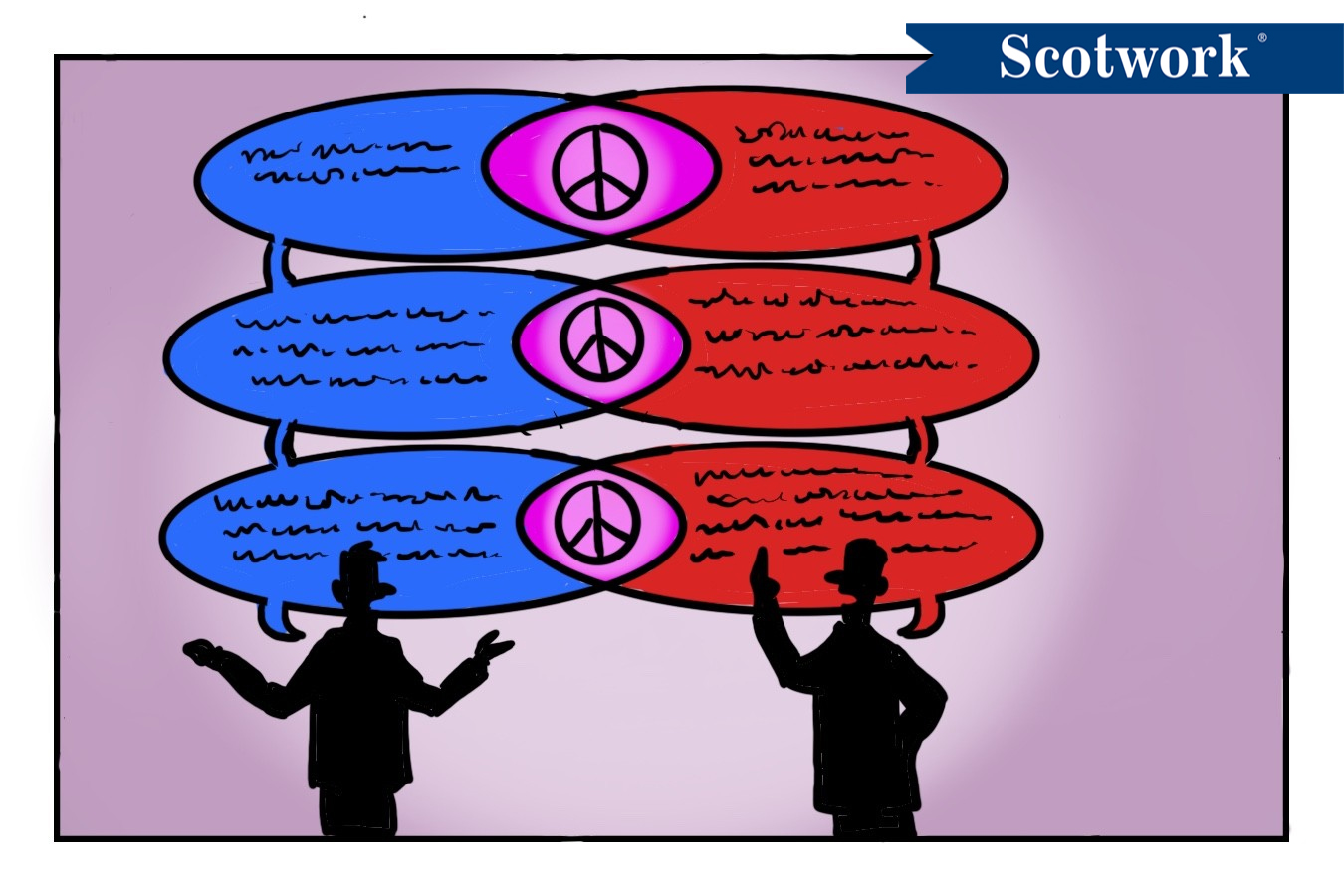It’s no secret that last week's presidential election was, well, spirited. In the aftermath, you might see a mix of victory laps and disappointed sighs, or your lunch break conversations may feel like a dance around landmines. Elections do that — they bring passions to the surface, dividing us along lines that don’t always fade once the ballots are counted. Yet the day after, we’re all back at work, navigating projects, deadlines, and, yes, differences of opinion.
For many of us, that’s a negotiation in itself: balancing our views with those of colleagues who see things from a very different perspective. And it’s not just about elections — these differences exist in every team, every office, every boardroom. So, rather than sidestepping these moments, we can see them as a chance to build the kind of collaborative spirit that actually works. Here’s how . . .
Seek to Understand, Not to Convert
Let’s face it, we all love being “right.” But convincing others to adopt our point of view can quickly turn into a losing battle. Instead, try taking a step back. What if, rather than aiming to convert, we attempt to understand? In negotiations, understanding the other side’s motives — without judgment — often reveals unexpected common ground. Listening can be a transformative tool, especially when opinions differ.
Focus on Shared Goals
In business, we may not all see eye to eye, but we’re generally working toward the same end. Whether it’s hitting that next deadline, improving customer satisfaction, or boosting the bottom line, our common goals should remain our focus. It’s easy to get sidetracked by debates on divisive topics, but if we can keep our eyes on what unites us, collaboration feels a lot more natural.
Establish Boundaries with Respect
Some topics are better left for after hours. Set boundaries — not to stifle discussion, but to foster respect. Political or personal differences don’t need to spill over into every conversation. Acknowledging that it’s OK not to engage in contentious discussions allows us to focus on the work at hand and keep our relationships constructive.
Agree to Disagree and Move Forward
Sometimes, the best way forward is simply to agree to disagree. In negotiations, not every viewpoint needs to be aligned for a deal to succeed. Acknowledging our differences without letting them derail progress can strengthen our teams. After all, it’s possible to respect a person even when we don’t agree with every viewpoint they hold.
The day after an election, and the days after that, can be challenging. Yet these moments also provide an opportunity to strengthen our teams by embracing our differences. Just as in negotiation, it’s not about “winning” every point. It’s about finding an outcome everyone can support and keep working side by side respectfully.
We Can Help You Navigate Differences with the Other Side.
Not every viewpoint needs to be aligned for a deal to succeed. Rely on Scotwork’s nearly 50 years of experience to find an outcome everyone can support and keep working side by side.

